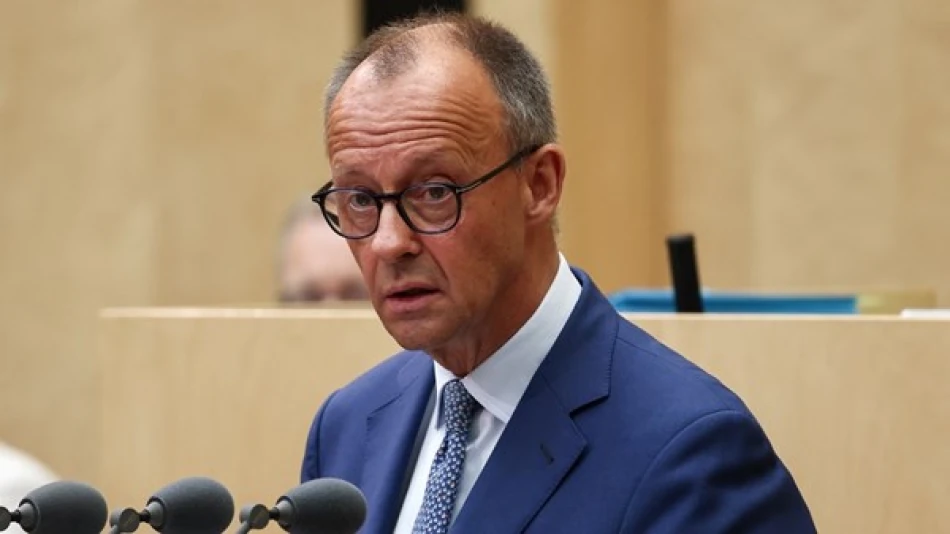
Merz Prioritizes Security as Top Agenda for New German Government
Germany Signals Major Defense Overhaul as NATO Pressures Mount
German Chancellor Friedrich Merz has positioned security and defense policy as the cornerstone of his administration's agenda, announcing plans for military service reforms and force expansion to meet evolving NATO requirements. The move reflects Germany's broader strategic shift from its post-Cold War pacifist stance toward a more militarily assertive role in European security.
Cabinet Meeting Sends Clear Message to Allies
In a symbolic gesture, the German cabinet held its weekly session at the Defense Ministry headquarters in Berlin on Wednesday, underscoring the government's renewed focus on military preparedness. Merz, leader of the Christian Democratic Union, emphasized that the security agenda represents both a commitment to German citizens and a signal to NATO partners about the country's defense priorities.
"Security occupies an extremely high position on the political agenda of this entire government," Merz declared following the cabinet meeting, which included consultations on Europe's broader security landscape.
Military Service Reform: Voluntary but More Attractive
The cabinet approved preliminary steps toward implementing a new military service system designed to boost recruitment while maintaining Germany's current voluntary framework. Rather than reinstating mandatory conscription—abolished in 2011—the government plans to enhance incentives and career prospects to attract more personnel.
Strategic Context Behind the Changes
This recruitment push comes as Germany faces mounting pressure to expand its armed forces to meet NATO's updated defense targets. The alliance has increasingly called on member states to strengthen their military capabilities in response to Russia's invasion of Ukraine and growing geopolitical tensions across Europe's eastern borders.
Germany's military, the Bundeswehr, currently numbers approximately 183,000 active personnel—significantly below the levels NATO strategists consider necessary for effective collective defense in the current threat environment.
European Defense Spending Reality Check
Germany's defense pivot mirrors similar moves across Europe, where governments are grappling with the need to balance fiscal constraints against security imperatives. Unlike smaller NATO members such as Estonia or Poland, which have rapidly increased defense spending as a percentage of GDP, Germany's industrial capacity and economic scale mean its military expansion could fundamentally alter European defense dynamics.
The timing also reflects lessons learned from other major powers' military recruitment challenges. The United States has struggled with recruitment shortfalls across all service branches, while France has maintained its mixed voluntary-conscription model to ensure adequate force levels.
Economic and Political Implications
For defense contractors and military technology firms, Germany's commitment to force expansion represents a significant market opportunity. Increased personnel numbers typically drive demand for equipment, training systems, and logistical support—sectors where German companies like Rheinmetall and international partners could see substantial growth.
Politically, Merz's emphasis on defense spending may help address long-standing tensions with the United States over burden-sharing within NATO, while potentially strengthening Germany's position in European Union defense initiatives.
The Broader Strategic Shift
This defense overhaul represents more than administrative reform—it signals Germany's recognition that its post-1945 approach to military affairs requires fundamental revision. The country that once epitomized European pacifism is now positioning itself as a cornerstone of continental defense, a transformation that will likely reshape both domestic politics and international relations across the region.
The success of these military service reforms will largely determine whether Germany can translate its economic strength into meaningful defense capabilities, potentially establishing it as Europe's primary military power alongside France and the United Kingdom.
Most Viewed News

 Layla Al Mansoori
Layla Al Mansoori






